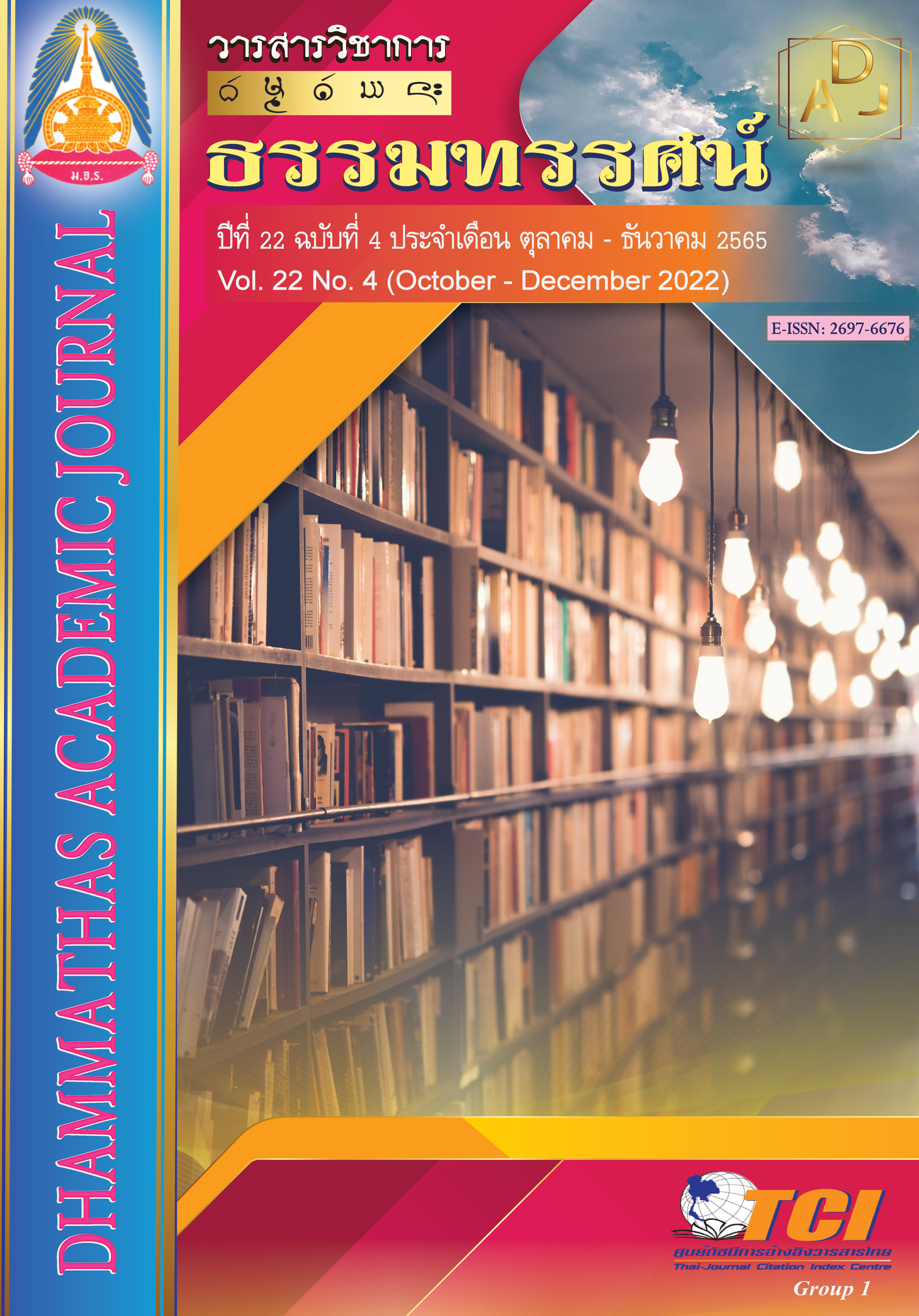Effects of the COVID Situation on Thai Education Management: Alternative Education is the Main Way and the way to Survive Thai Education in the Future
Main Article Content
Abstract
Positive impact on learning management in the situation of COVID - 19, it was found that educational institutions have changed their plans and goals in educational management. The Internet network system has been improved to be of higher quality. New learning management styles and technologies are used to make learning
management more interesting. And new methods of measurement and evaluation are increasingly used. The students spend more time with their families. Students can reduce the time, risk and cost of commuting to school. The negative impact on the learning management system in the educational institutions was found that the internet network and communication are insufficient and the signal is unstable. The quality of teacher learning management declined. It is a workload and affects the time of teaching and learning. Teachers are concerned about the new learning arrangements. And the student's academic performance will decline.
Alternative education is another approach to education that focuses on the learner as a very important aspect. It pays attention to age, gender, race, religion, values, beliefs, aptitudes, readiness and interests, including the environment, community context, wisdom, knowledge and arts and culture in the locality where the learners live. Therefore, learners have the opportunity to truly study according to their own potential. It is one of the important guidelines that can be a solution to Thailand's educational problems in the future due to the COVID-19 outbreak affecting education around the world.
Article Details

This work is licensed under a Creative Commons Attribution-NonCommercial-NoDerivatives 4.0 International License.
เพื่อให้เป็นไปตามกฎหมายลิขสิทธิ์ ผู้นิพนธ์ทุกท่านต้องลงลายมือชื่อในแบบฟอร์มใบมอบลิขสิทธิ์บทความ ให้แก่วารสารฯ พร้อมกับบทความต้นฉบับที่ได้แก้ไขครั้งสุดท้าย นอกจากนี้ ผู้นิพนธ์ทุกท่านต้องยืนยันว่าบทความ ต้นฉบับที่ส่งมาตีพิมพ์นั้น ได้ส่งมาตีพิมพ์เฉพาะในวารสาร วิชาการธรรม ทรรศน์ เพียงแห่งเดียวเท่านั้น หากมีการใช้ ภาพหรือตารางของผู้นิพนธ์อื่นที่ปรากฏในสิ่งตีพิมพ์อื่นมาแล้ว ผู้นิพนธ์ต้องขออนุญาตเจ้าของลิขสิทธิ์ก่อน พร้อมทั้ง แสดงหนังสือที่ได้รับการยินยอมต่อบรรณาธิการ ก่อนที่บทความจะได้รับการตีพิมพ์References
ชนันภรณ์ อารีกุล. (2562). การศึกษาทางเลือก: รูปแบบการเรียนรู้ที่สำคัญสาหรับเจเนอเรชันแอลฟา. วารสาร มจร สังคมศาสตร์ปริทรรศน์, 8(3), 270-283.
ปริชัย ดาวอุดม. (2564). รูปแบบการพัฒนาการจัดการศึกษาทางเลือกตามแนวพระราชดำริเศรษฐกิจพอเพียงเพื่อการพัฒนาที่ยั่งยืน. วารสารวิจัยและพัฒนาหลักสูตร, 11(1), 200-210.
พิชญ์สินี มะโน. (2562). ผลกระทบจากการเปลี่ยนแปลงในยุค DIGITAL DISRUPTION ต่อการศึกษา. วารสารครุศาสตร์อุตสาหกรรม, 18(1), 1-6.
ราชบัณฑิตยสถาน. (2555). พจนานุกรมศัพท์ศึกษาศาสตร์ ฉบับราชบัณฑิตยสถาน. กรุงเทพฯ: อรุณการพิมพ์.
วีระเทพ ปทุมเจริญวัฒนา. (2561). การศึกษาทางเลือก: แนวทางที่ท้าทายในยุคปฏิรูป. เข้าถึงได้จาก https://portal.edu.chula.ac.th/nfed1/assets//Weerathep_choice.pdf
สมเกียรติ อินทสิงห์. (2559). การศึกษาทางเลือก: หลักสูตรและการเรียนการสอนที่เน้นความแตกต่างระหว่างบุคคล. Veridian E-Journal, Silpakorn Universit, 9(2), 1188-1206.
สำนักงานเลขาธิการสภาการศึกษา กระทรวงศึกษาธิการ. (2558). การจัดการศึกษาทางเลือกในประเทศไทย. กรุงเทพฯ: วี. ที. ซี. คอมมิวนิเคชั่น.
_______. (2563). รายงานเรียนออนไลน์ยุคโควิด-19: วิกฤตหรือโอกาสการศึกษาไทย. กรุงเทพฯ: สำนักมาตรฐานการศึกษาและพัฒนาการเรียนรู้สำนักงานเลขาธิการสภาการศึกษา กระทรวงศึกษาธิการ.
_______. (2564). รายงานการศึกษารูปแบบการจัดการเรียนรู้สำหรับนักเรียนระดับการศึกษาขั้นพื้นฐานที่ได้รับผลกระทบจากสถานการณ์โควิด-19. กรุงเทพฯ: สำนักมาตรฐานการศึกษาและพัฒนาการเรียนรู้สำนักงานเลขาธิการสภาการศึกษา กระทรวงศึกษาธิการ.
สุชาดา จักรพิสุทธิ์ และคณะ. (2548). การวิจัยการศึกษาทางเลือก: ฐานข้อมูลและการวิเคราะห์. กรุงเทพฯ: สำนักงานกองทุนสนับสนุนการวิจัย.
อุบลวรรณ หงษ์วิทยากร. (2561). รูปแบบการเรียนรู้ที่ส่งเสริมการศึกษาทางเลือก. วารสารครุศาสตร์ จุฬาลงกรณ์มหาวิทยาลัย, 46(2), 260-280.
Frank, R. M., et al. (2019). Toward understanding the impact of artificial intelligence on labor. Retrieved from https://www.pnas.org/content/116/14/6531
Wisskirchen, G., et al. (2017). Artificial Intelligence and Robotics and Their Impact on the Workplace. UK: IBA Global Employment Institute.

